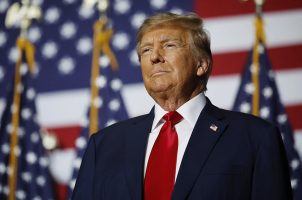US State Department Accuses Philippine Casino Sector of Ongoing AML Deficiencies
Posted on: April 11, 2018, 03:00h.
Last updated on: April 11, 2018, 02:20h.
The Philippines has tightened anti-money laundering (AML) controls at its casinos, but the gaming sector is still guilty of “ongoing deficiencies,” according to the recent US State Department’s Narcotics Control Strategy Report.

These include the liberal acceptance of proxy betting and the sector’s high transaction reporting threshold of $100,000.
The annual State Department report is compiled to outline the efforts of key countries across the globe to attack the international drug trade and combat money laundering and financial crime.
Bangladesh Bank Heist
The 2016 cyber-heist on the New York Federal Reserve Bank embarrassed the Philippine government into reforming its lightly regulated casino sector – to a degree.
Computer hackers, possibly acting on behalf of the North Korean government, were able to transfer $101 million from a bank account owned by the government of Bangladesh. Some $89 million found its way into casinos in the Philippines where most of it promptly disappeared.
The incident drew the world’s attention to the Philippine’s AML failings. Its Anti-Money Laundering Act of 2001 had imposed transaction reporting directives on the financial sector but had exempted casinos. But facing pressure from the World Bank, the country’s lawmaker’s tightened controls.
The State Department noted the country’s casinos were now controlled by the Anti-Money Laundering Act, but suggested they were still getting an east ride. For example, where the country’s financial institutions are required to file a report to financial regulators on all transactions over roughly $10,000, for casinos the threshold is roughly $100,000.
In the US and many jurisdictions around the world, $10,000, or its rough equivalent value in local currency, is the reporting threshold for both casinos and financial institutions.
Living by Proxy
The State Department also noted that the junket industry, which lends money to high-rollers to gamble at the casinos, was still exempt from the Act, making it easy for wealthy criminals to circumvent checks and balances. Non-cash transactions are also excluded from AML reporting.
The report highlighted the prominent culture of proxy betting, in which a gambler or gamblers are able to give instructions, usually online, to an individual inside a live casino to place bets on their behalf on games like baccarat in real-time. Customers can open accounts, deposit money, and settle at proxy betting websites.
While gambling in casinos on behalf of a third-party is usually illegal in the US and Europe for AML reasons, and has recently been banned in Macau, Philippine operator-regulator PAGCOR actively nurtures and licenses proxy betting companies.
The State Department also expressed concern about PAGCOR’S dual role of operator-regulator, which it said raises conflict-of-interest issues.
Related News Articles
Most Popular
The Casino Scandal in New Las Vegas Mayor’s Closet
LOST VEGAS: Wynn’s $28 Million Popeye
MGM Springfield Casino Evacuated Following Weekend Blaze
Sphere Threat Prompts Dolan to End Oak View Agreement
Mark Wahlberg’s Latest Acting Role: Las Vegas Gym Operator
Most Commented
-
VEGAS MYTHS RE-BUSTED: The Final Resting Place of Whiskey Pete
— October 25, 2024 — 3 Comments -
VEGAS MYTHS RE-BUSTED: A Roulette Color Can Be ‘Due’
— October 11, 2024 — 2 Comments -
Iowa Casinos Push Back Against Cedar Rapids Resort Pitch
— October 7, 2024 — 2 Comments -
Las Vegas Sports Bettor Claims William Hill Screwed Him Out of $40K PGA Bet
— October 22, 2024 — 2 Comments
















No comments yet